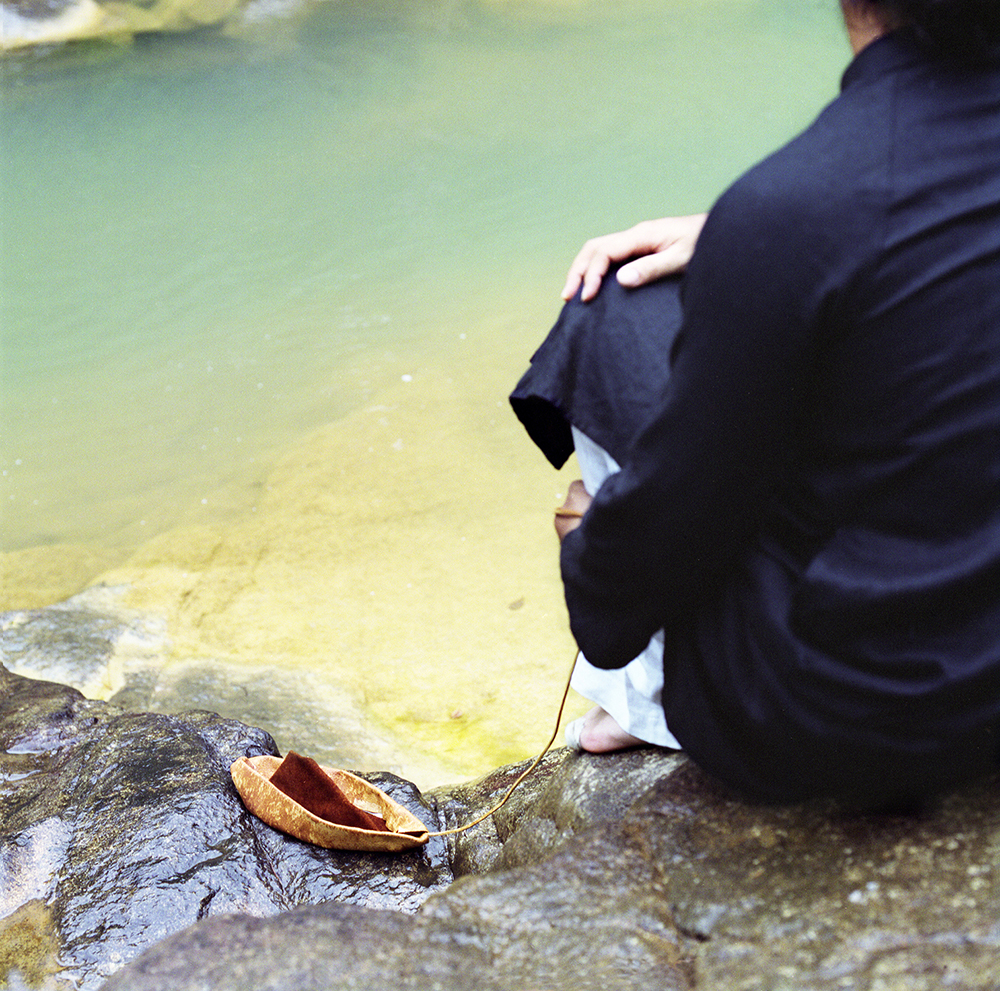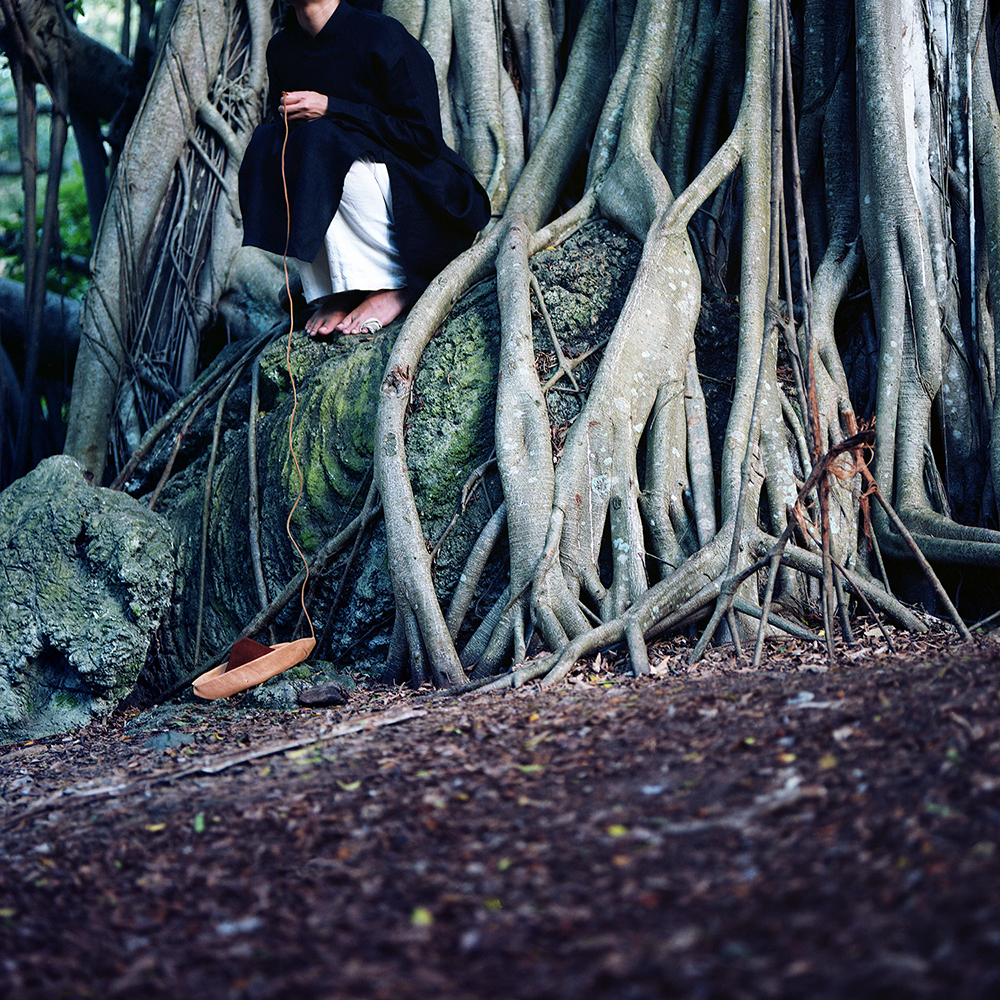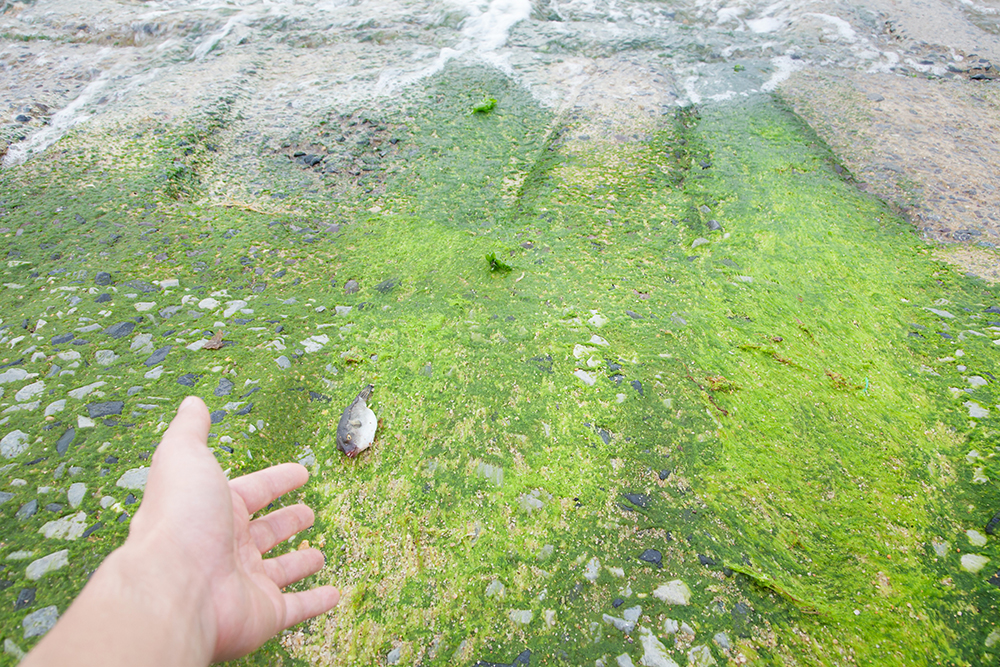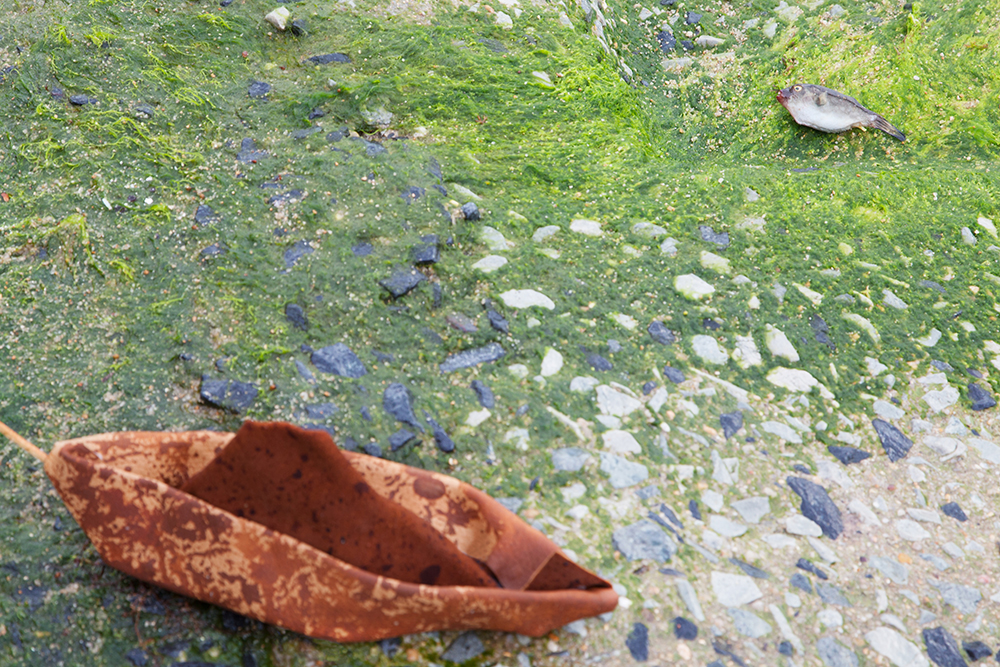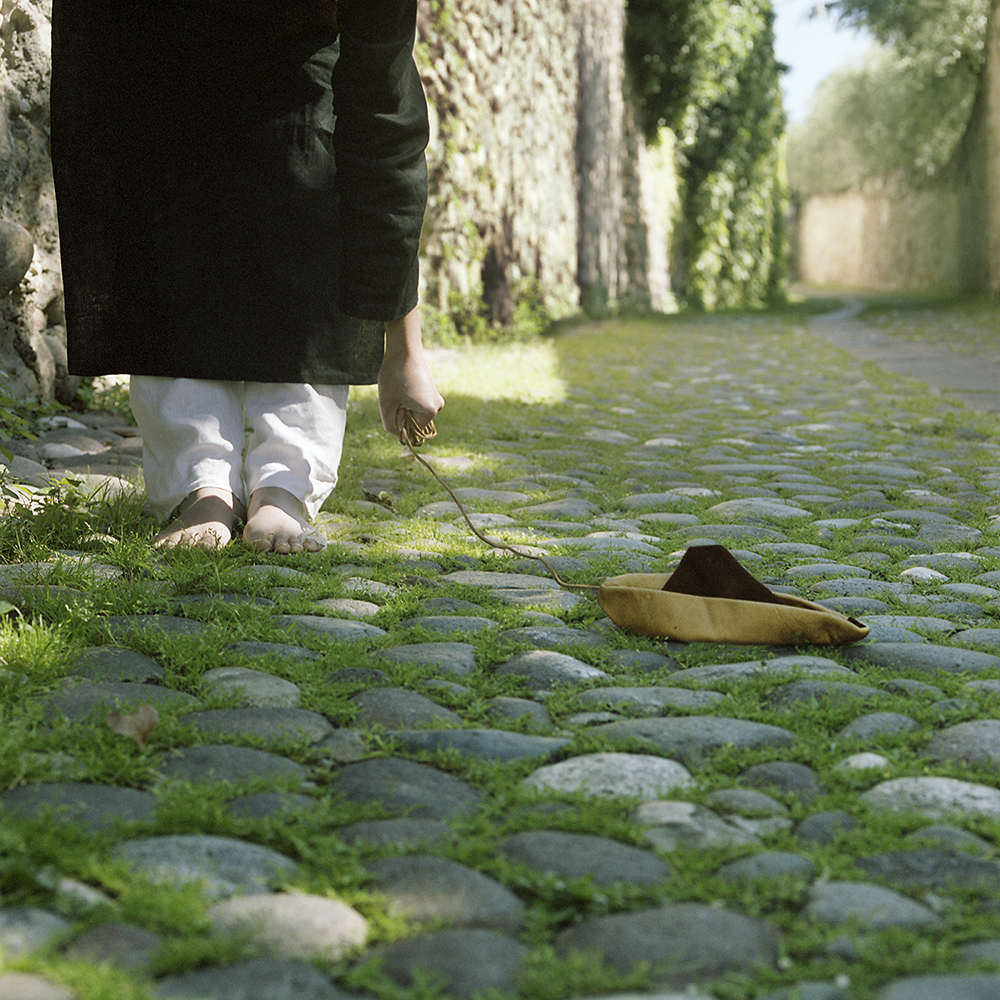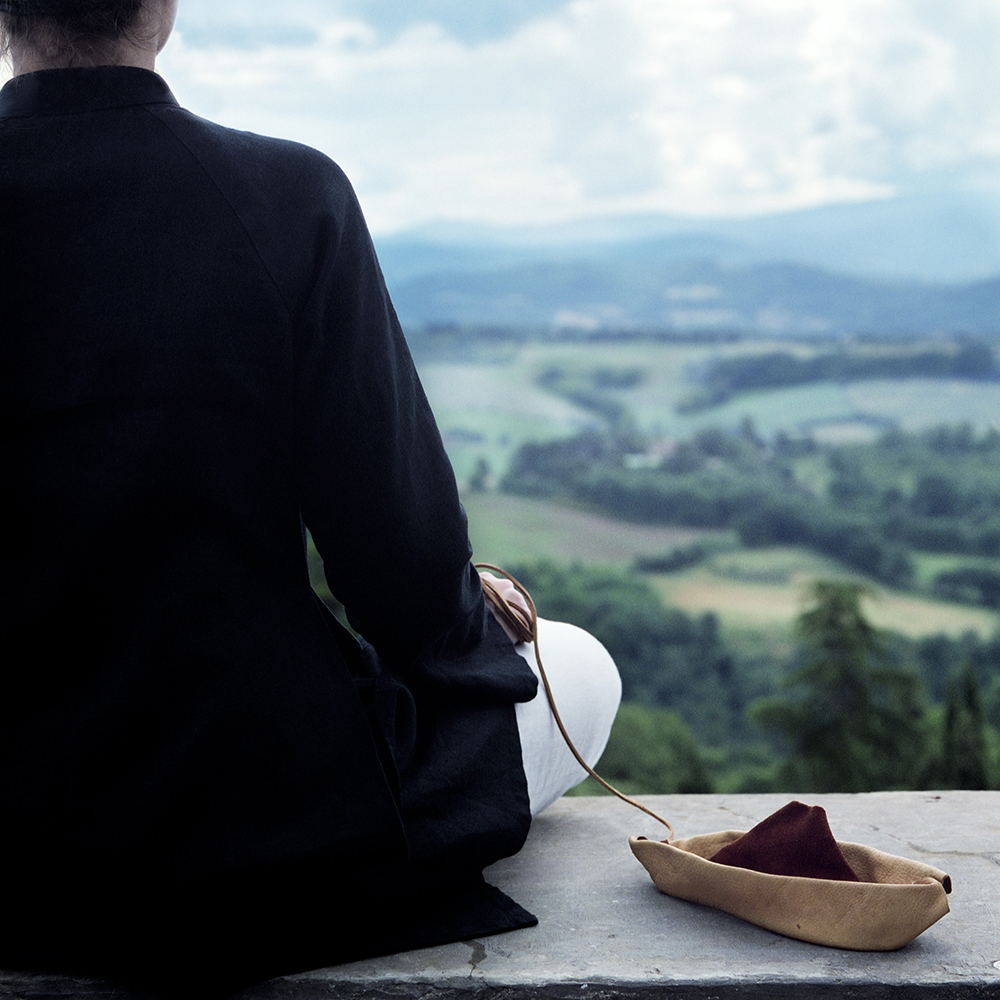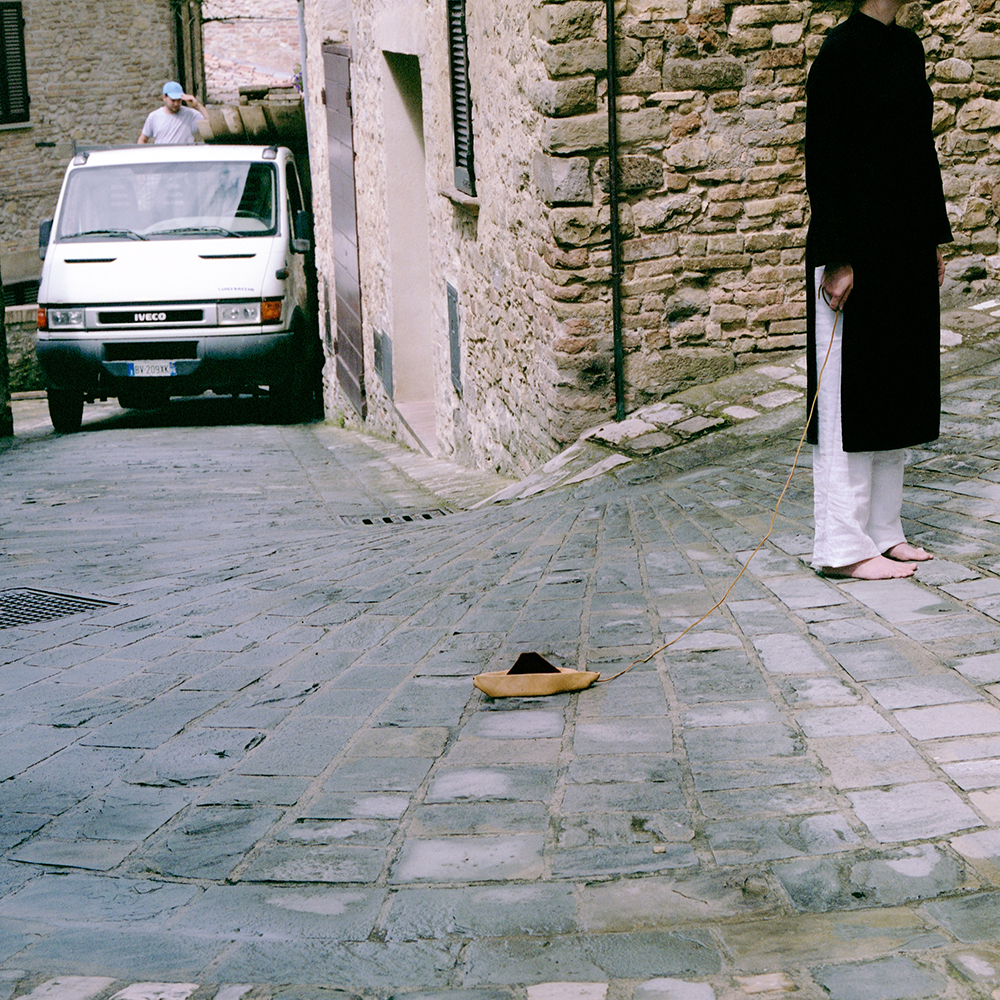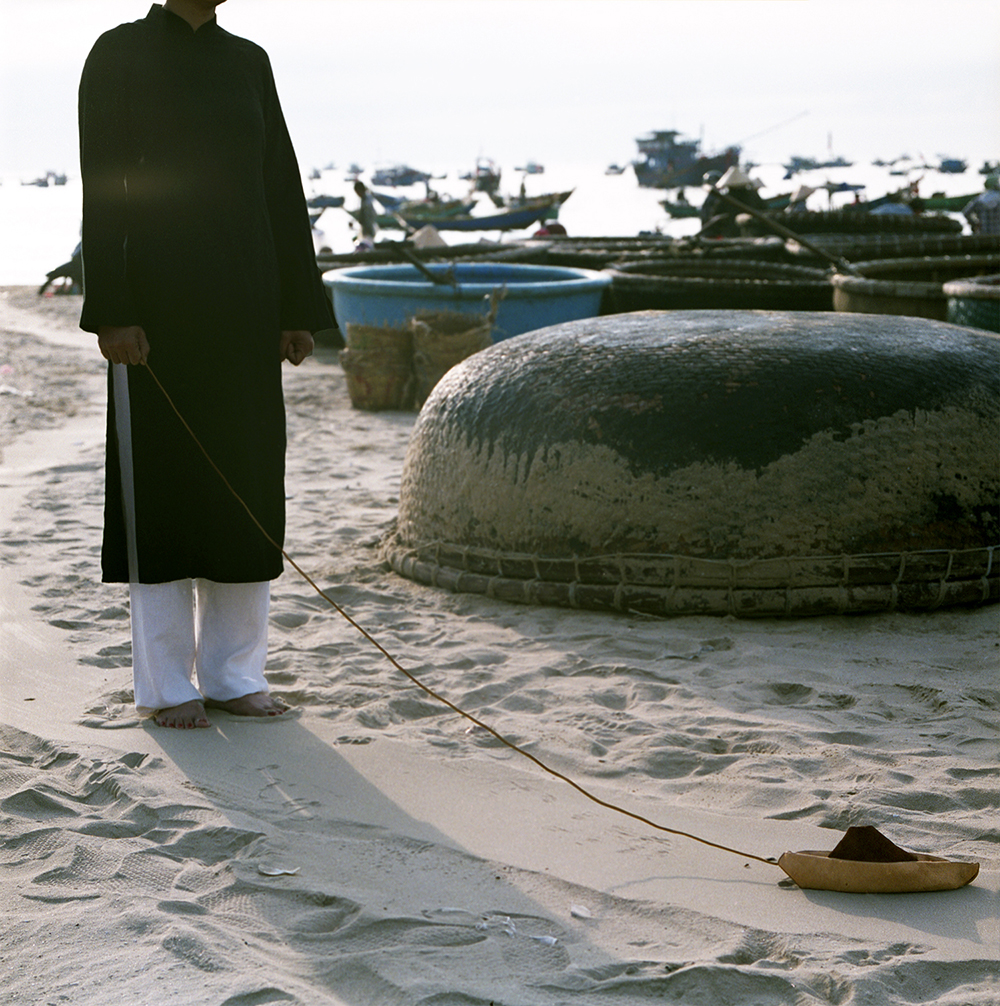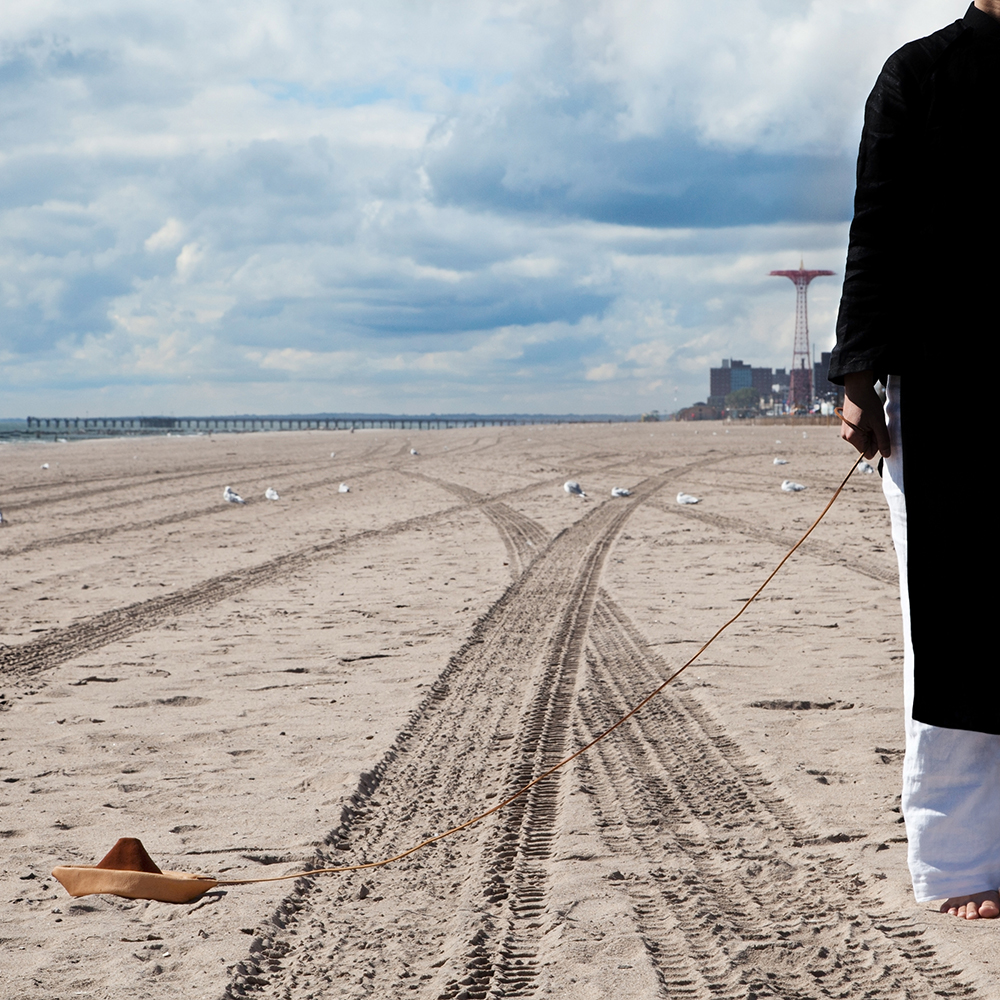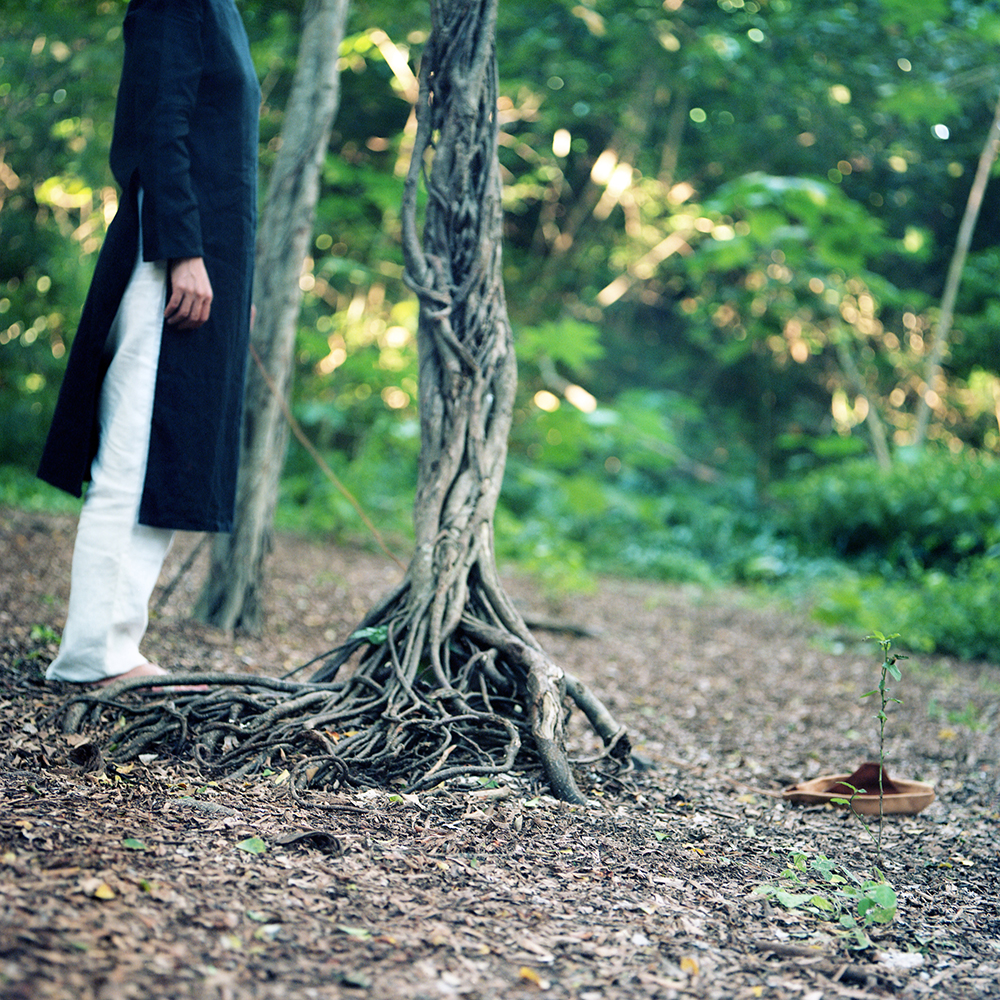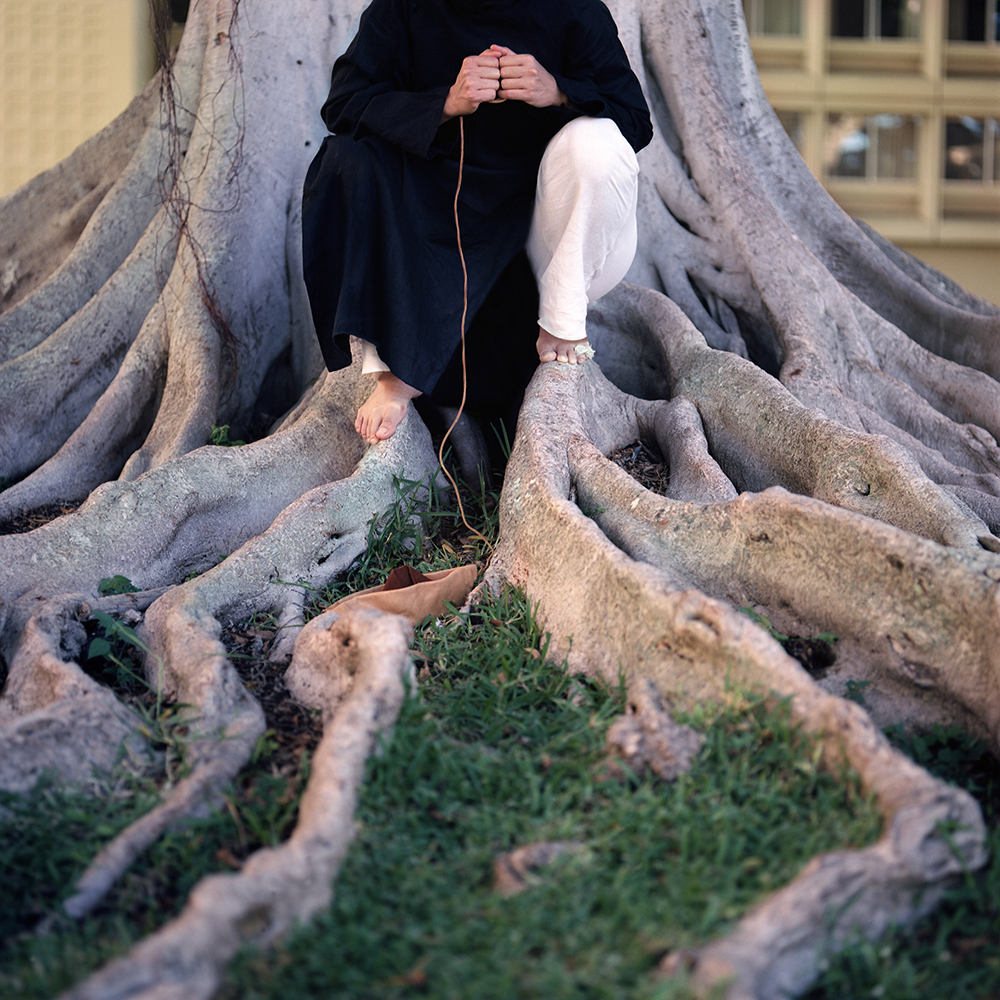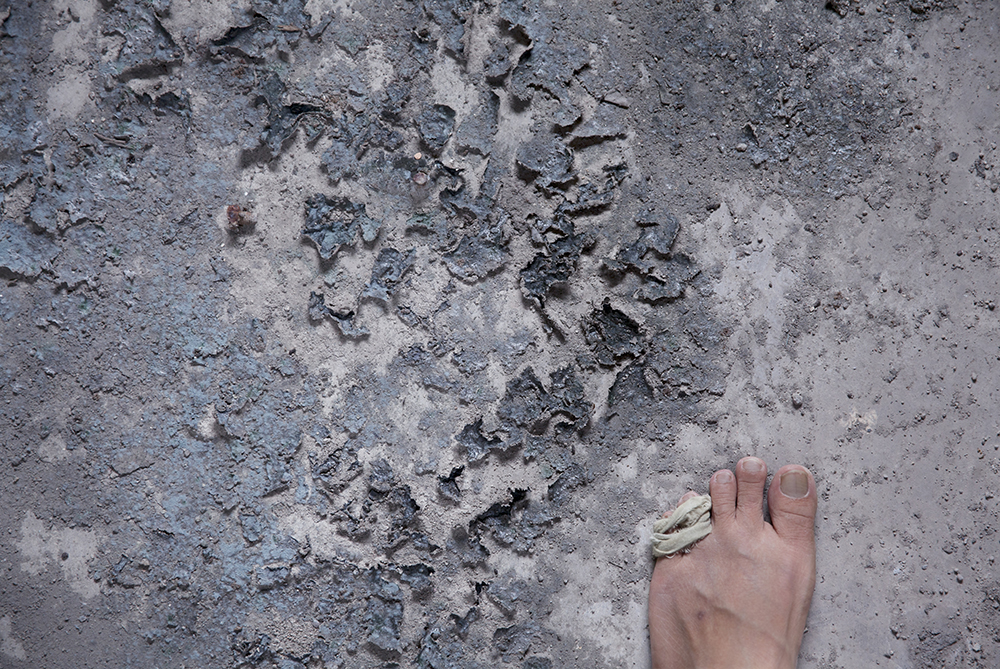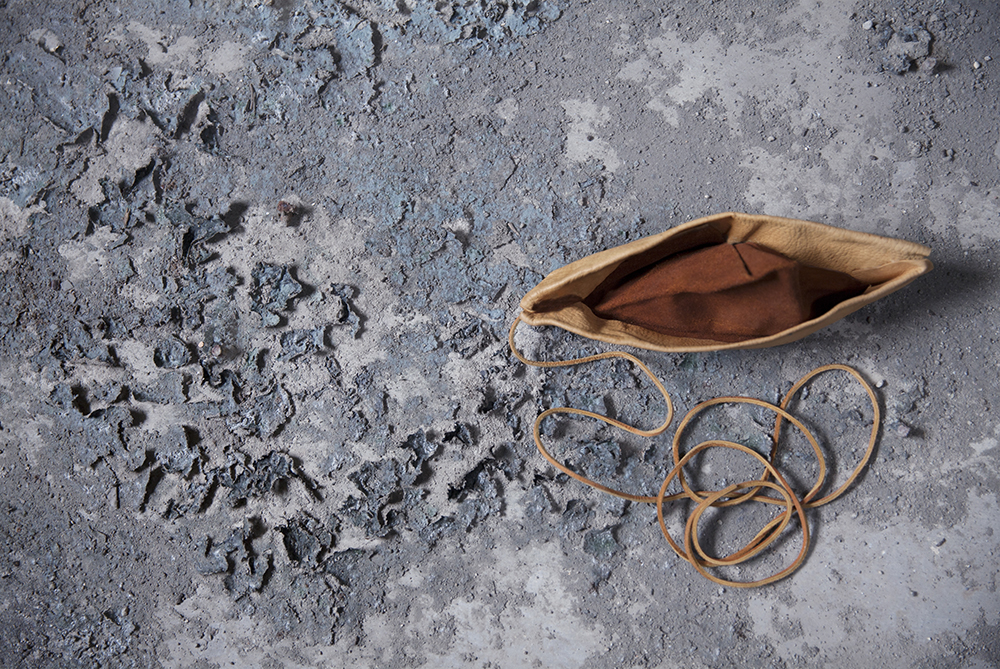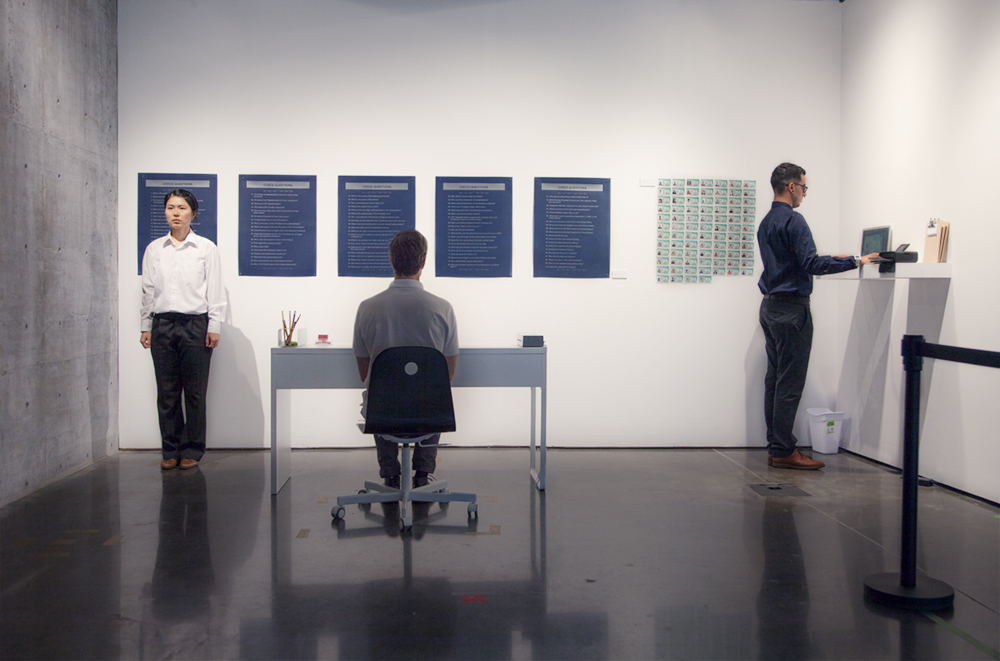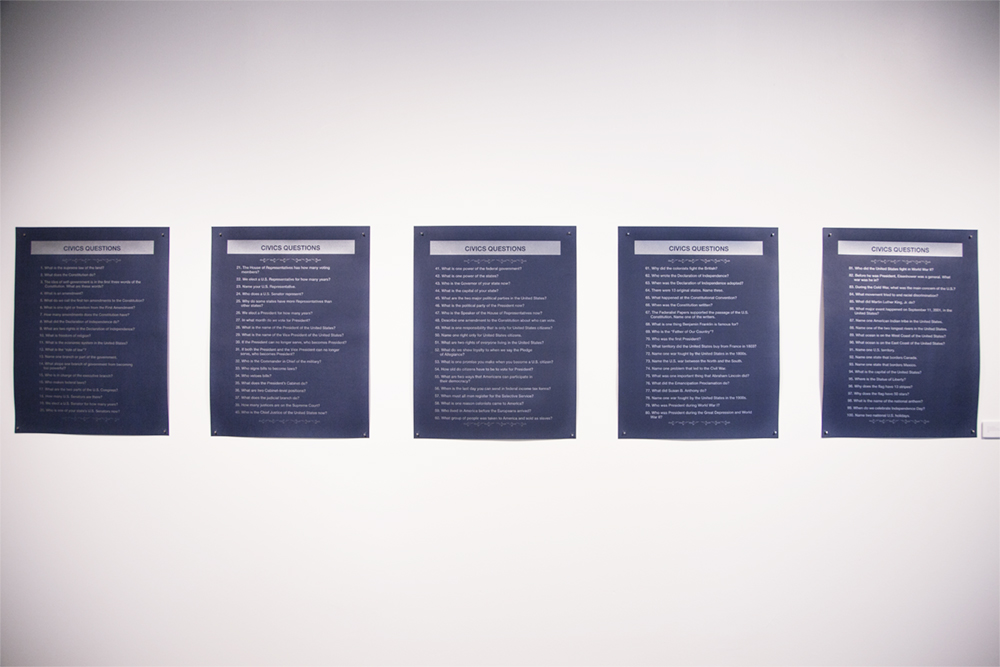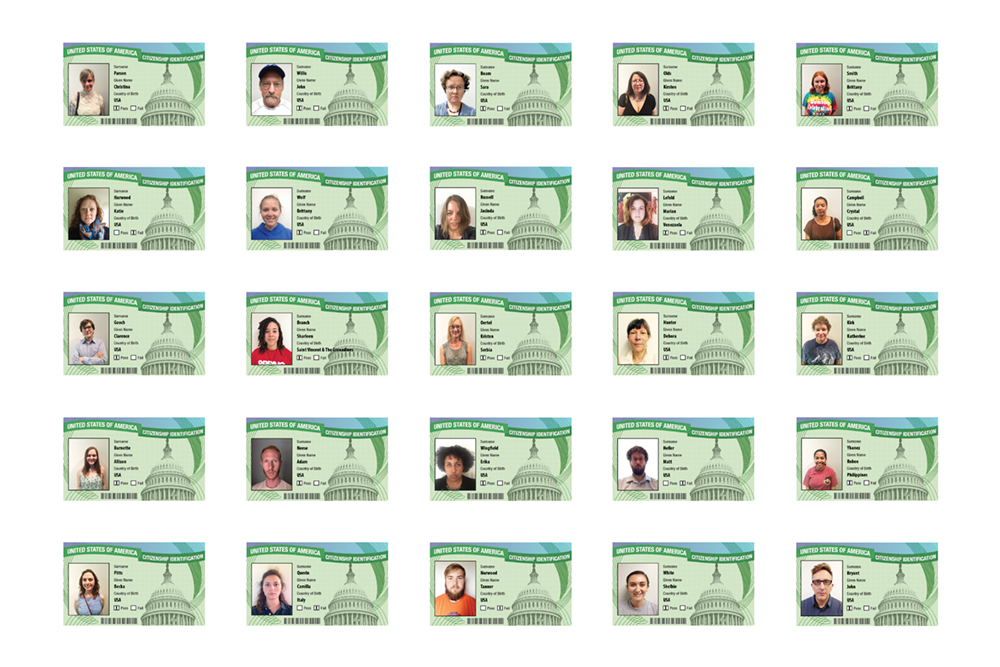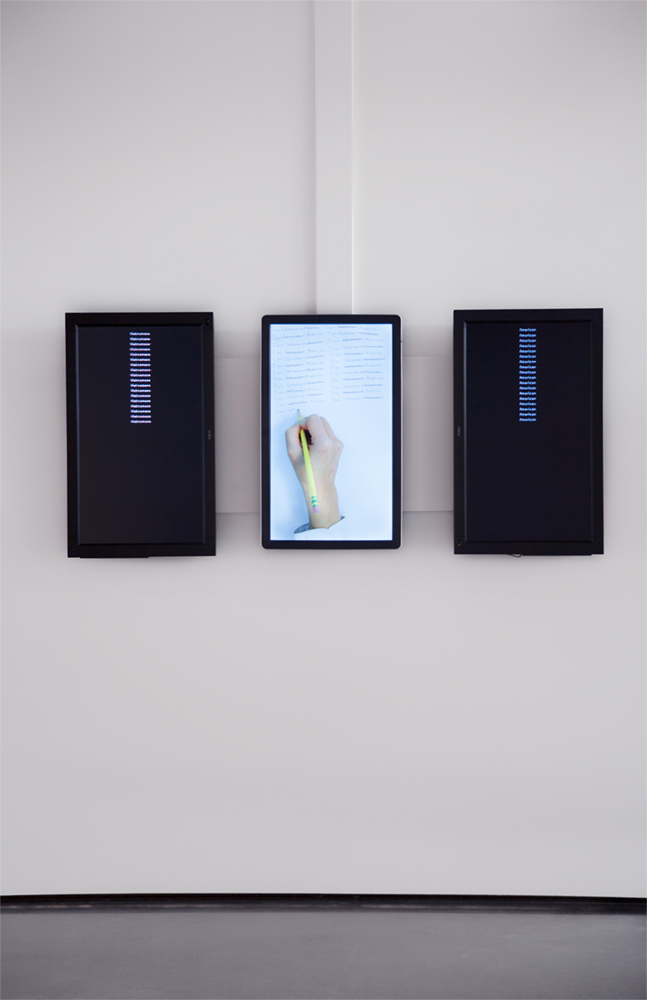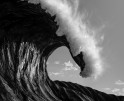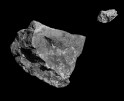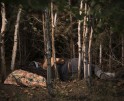The States Project: Oklahoma: Anh-Thuy Nguyen
Oklahoma is a state in the South Central region of the United States, bordered by Kansas on the north, Missouri on the northeast, Arkansas on the east, Texas on the south, New Mexico on the west, and Colorado on the northwest – right in the heartland of the United States. This week Artist Anh-Thuy Nguyen shares the work of photographers creating work in this musical state, as she takes over as the Oklahoma States Project Editor. Today we share two of her projects, Boat Journey and Citizenship Project, both speak to her experience of being an immigrant. An interview with Anh-Thuy follows. “Boat Journey” and “Citizenship Project”. Both series have been included in a peer-review multidisciplinary journal, Critical Multilingualism Studies, volume 6 No 1 (2018): Languaging as Refuge: Practice Meets Theory. Readers can find interesting articles on decoding Citizenship in USCIS Naturalization test materials and many other good articles. A portion of “Boat Journey” will also exhibited at California Museum of Photography, in “Exile: The Land of Non-Belonging” from May-Sep, 2019.
The journey I have experienced as a female, an immigrant, and an outsider provides me rich experiences to define who I am. My personal work highlights complex relationships and cultural clashes resulting from my existing between cultural identities: Vietnamese and American. My ongoing concerns investigate conflicting emotions, feelings, and thoughts through the portrayal of manifestations of gain and loss.
My background is photographic lens-based media, and in most of these works, I stage scenarios based on my experiences being a Vietnamese person in Viet Nam and in America and document my spontaneous responses to them. A dual tension of the impossibility of full assimilation in a new land and the difficulty of returning and reintegrating in one’s own culture gives me the idea for Boat Journey, an ongoing photographic project, which focuses on a quest for a place where we, immigrants, seek to belong. This project is as relevant now when millions of migrants find ways to flee and settle to the European Union from war-torn Syria and Iraq as it was then when flocks of Vietnamese exiles sought refuge from the American War in late 1970s. – Anh-Thuy Nguyen
Aline Smithson: Tell us about your growing up and what brought you to photography…
Anh-Thuy Nguyen: I grew up in a small beach city in Viet Nam, having no art-making experience or exposure to visual arts during my first 18 years. In Vietnamese culture, the children mostly follow their parents’ career paths. If one was not born in an artistic family, one would encounter obstacles when trying to be an artist. 43 years after the American war, Vietnamese people still thrive to have a stable economic life by doing commerce, business, services, etc, and not by making art (the only creative visual art field would flourish in Vietnam is cinema.) I am no different, finishing a degree in Economic Geography and had a stable job at a British trade company. Yet, I felt unfulfilled and knew there was a part of me missing somehow. When I first came to the States in 2013, everything changed. I went back to school and my journey started at Pima Community College (PCC), where I was first introduced to photography by Karen Hymer and Ann Simmons-Myers (Sam). Thanks to a scholarship offered through the photo program, I was managed to take additional photo classes at PCC. I vividly remember how I felt when I submitted my online application to the photo program at the University of Arizona. At that moment, I was still unsure of my decision. Yet, the longer I am on this path, I know I am living my decision.
AS: You live and teach in Oklahoma, a long way from Vietnam. Has Oklahoma changed your practice in any way?
ATN: Living and teaching in Eastern Oklahoma for the last 5 years had been a fascinating experience. I lived in Oklahoma, I made work in Oklahoma, but I did not make work about Oklahoma. Not until my last 6 months living there, I started a project about Oklahoma. In a way, the last 5 years has been a gateway for me to absorb the Okie cultures, filter them, and focus on what resonates with me to make a project about Oklahoma.
AS: How did you go about selecting the photographers for this week?
ATN: When I was given this assignment, I thought hard and hard on how I would like my “artistic” colleagues to view the best of Oklahoma, the version I have experienced. I often got a response: “Oklahoma?” when I said I taught and lived in Oklahoma. Dan Farnum, Eyakem Gulilat, Crystal Z Campbell, Ryan Red Corn, and their work sum up what my views of Oklahoma are: a warmth art community with sincerity attitudes in art making and diverse angles of perspectives looking at their communities and ethnicities.
AS: Your project, Boat Journey, was a beautiful metaphorical telling of the immigrant experience of having a foot in two worlds, neither which completely feels like home. Does making work about this subject give your comfort or insight into your own story?
ATN: I am certain every immigrant has this experience, being stuck in between, especially for those who can not return to his/her country. This was an extremely unbearable feeling and it haunted me even in my dreams for a straight 7 years, when I could not return to Viet Nam due to my legal status. A part of my past and my present is missing in there and/or here. In the making of Boat Journey project, I would like to acknowledge this unease feeling, experience and broaden that experience to those who share similar conditions, to make our world a bit smaller, to be empathy.
AS: What has been the reaction the Citizenship project installation? It’s fascinating to consider what immigrants have to learn, where I’m sure many U.S. citizens could not answer the questions.
ATN: I was so surprise when the Citizenship Project installation premiered. Gallery goers would stand in line eagerly waiting to take a civics test. They talked, discussed, exchanged information among themselves and strangers. I noticed they also pulled out their smart phones, searching for answers. They were actually nervous as they approached the mock-up USCIS officer, having their photo taken, taking the test, and waiting for the pass/fail result shown on their ID cards. I saw some disappointed expressions when they failed the test.
I have always enjoyed participatory project, it is one of the reason I designed Citizenship Project, to activate the level of engagement among my participants. Isn’t it what is needed for a citizen to exercise his/her civic duties?
A.S.: Who has influenced your practice?
ATN: I learn a great deal from practitioners who have taught me about life, community, image-making, ideas, engagement, art, and…..to cry. There are too many to name, but here are a few: Sam, Karen Hymer, Maria Lee, Cass Fey, Joseph Labate, Ken Shorr, Frank Gohlke, Debora Hunter, Charlie DeBus, Philip Van Keuren, Michael Corris, Noah Simblist, Yoko Ono and more
A.S.: How do you keep the photo fires burning?
ATN: Living and experiencing the act of living is my motto. Each experience I have, I make notes and when the right time comes, I produce work.
A.S.: What’s next?
ATN: I am in the preliminary stage of a project about Oklahoman. I need to organize my audio recordings, start to conceptualize and visualize them. I hope to get back to Tulsa and acquire more materials to build up this project.
A.S.: And finally, describe your perfect day….
ATN: Thank you Aline. One of my perfect day: if I can have Phở for breakfast, preparing lunch with my mother, reading a couple pages of a photo related book, receiving an email from a new or old (artist) friend, thinking about art making, having dinner with my family, and having a good night sleep.
As I made a transition from a permanent resident to an American, I learnt that in order to become a naturalized citizen, a green card holder must pass the naturalization test, which includes an English and civics test. Citizenship Project is created as my interpretation of documenting this naturalization process. It also expands my interest to screen prints and graphic design alongside with my primary approaches including photography, video, performance and installation art. The multi-media project is built upon my fascination with pass/fail measurements applied in American system and relational aesthetics, the type of art that creates a social environment in which people come together to participate in a shared activity. Citizenship Project’s installation blurs the lines between art and life, when it resembles a workspace, where a series of five serigraphs serves as wall decorations, and a group of id cards becomes a form of document.
Being alive inspires me to be an artist, being an artist is not just a career choice any more, it is a life style, it is me. I live my life as an immigrant, a minority, and a female and I transform those experiences into inspirations, materials for my projects. – Anh-Thuy Nguyen
Posts on Lenscratch may not be reproduced without the permission of the Lenscratch staff and the photographer.
Recommended
-
Earth Week: Hugh Kretschmer: Plastic “Waves”April 24th, 2024
-
Earth Week: Richard Lloyd Lewis: Abiogenesis, My Home, Our HomeApril 23rd, 2024
-
Earth Month Photographers on Photographers: Jason Lindsey in Conversation with Areca RoeApril 21st, 2024
-
Earth Month Photographers on Photographers: J Wren Supak in Conversation with Ryan ParkerApril 20th, 2024
-
Earth Month Photographers on Photographers: Josh Hobson in Conversation with Kes EfstathiouApril 19th, 2024

